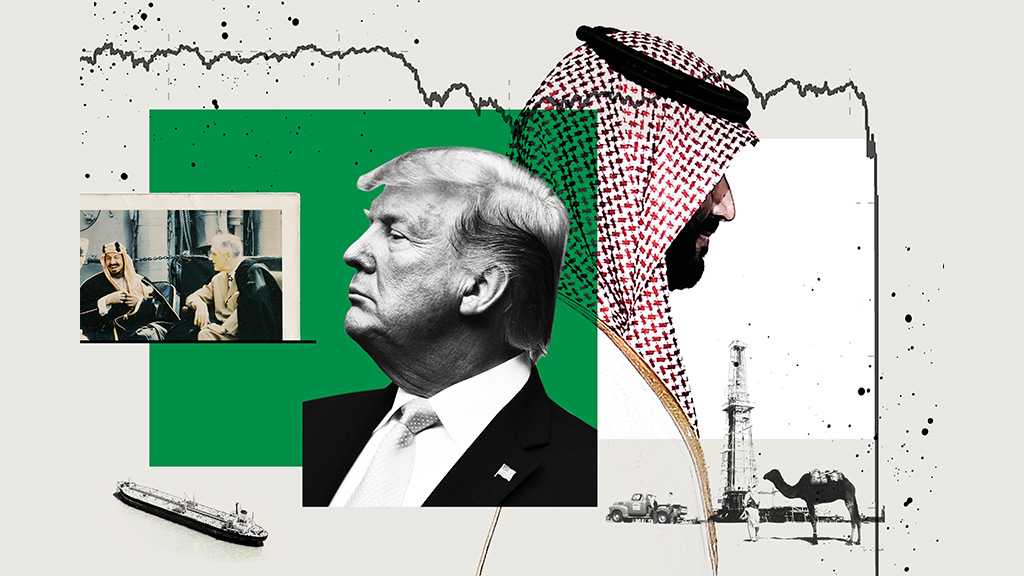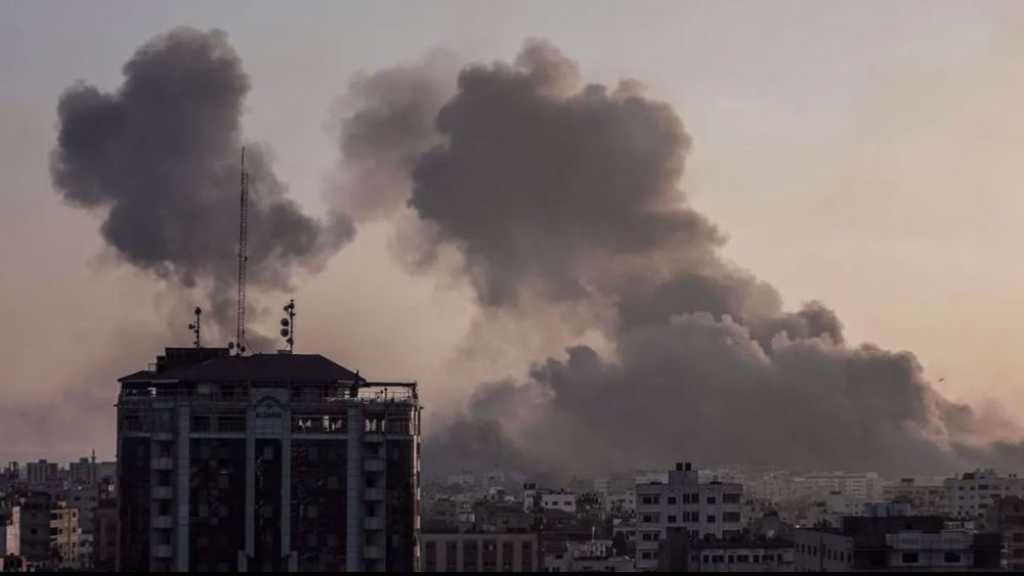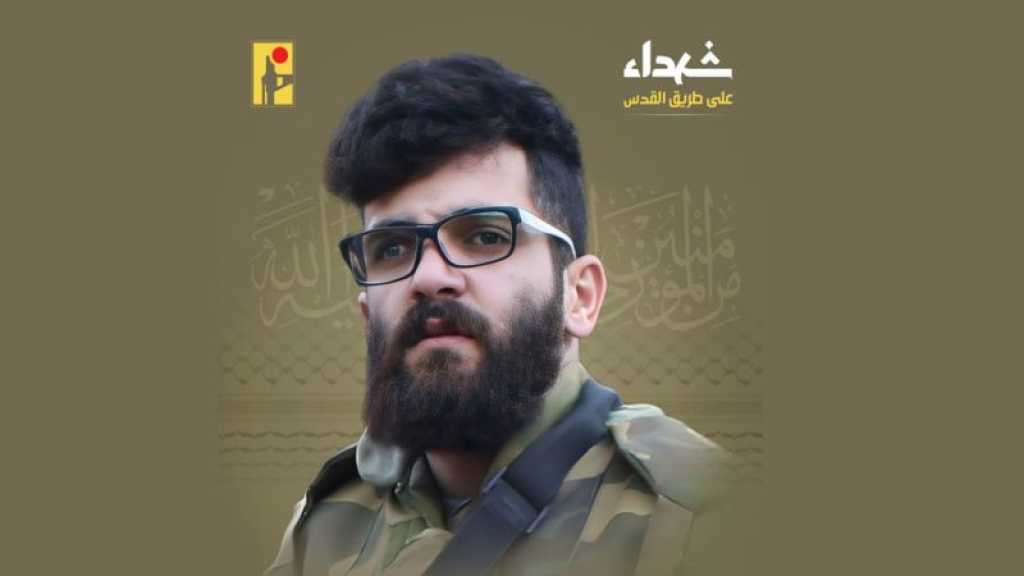
From Dependents to Allies: America’s Gulf Relations Need Reform

By Staff, National Interest
This year, the partnership between the United States and the oil-rich Arab monarchies of the Gulf celebrates its seventy-fifth anniversary. Launched in a secret meeting between American president Franklin D. Roosevelt and Saudi king Abdulaziz Ibn Saud aboard the USS Quincy on February 14, 1945, this relationship is one of the oldest in the world. In an ever-changing international system where friends often turn into foes and vice versa, this is a remarkable achievement. Even full-fledged military alliances, which typically include collective defense commitments where all members pledge to each other’s defense against external threats, have an average age of fifteen years.
The partnership has endured because it is based on political-strategic understandings [even if some are secret and/or informal], shared security interests, and strong economic ties. It is supported by a large and lasting US military presence on Gulf territory meant to offer protection, and by the regular transfer by Washington of modern and lethal arms to Gulf governments, the size of which is unmatched among any other set of allies and partners in the world. It has survived several crises in its lifetime, the most critical of which is 9/11.
Yet for all its resilience, the US-Gulf partnership has underperformed since the second term of the George W. Bush presidency in the critical area of security coordination. During three major crises, each happening under a different US administration, the partnership failed to effectively address the security concerns of the Gulf states. While no partnership is perfect, such major and persistent breakdowns in coordination among longstanding security partners are uncommon, and can be deadly if left unresolved.
US domestic politics, shifting American strategic priorities, policy divergences, the nonexistence of a formal US security commitment, and operational considerations all played a role. But on their own, they cannot fully explain why security problems in the partnership have persisted for over a decade. There is another important but overlooked factor: the lack of institutionalization of the partnership, characterized by the absence of norms, mechanisms, and procedures for consultation between Washington and Gulf capitals on vital matters of national security. This normative and bureaucratic deficit is old, and it has contributed to the fraying of the US-Gulf partnership.
In 2002, President George W. Bush was consumed with preparations for war against Iraq. He didn’t have the bandwidth to go after Tehran and instead had to settle for economic sanctions against its government for building its nuclear program.
Most diplomatically active among the Gulf states at the time were the Emiratis, who were shuttling nonstop between Washington, London, and Brussels, desperately trying to obtain information that could help them interpret Washington’s intentions vis-à-vis Iran. All of the Gulf states, especially the smaller ones that lack strategic depth, are vulnerable to missile attacks by Iran. As such, any extensive military exchange between the United States and Iran in the region would constitute an existential threat to them should Iran attack them in retaliation.
Yet despite repeated attempts by Gulf leaders to seek greater transparency from and work together with the Bush administration, US officials kept their Iran cards very close to their chest, which resulted in a crisis of trust in the partnership and fears in the Gulf of a war for which they were ill-prepared.
Those concerns continued during the Obama presidency. Not only did “Israel” threaten to act alone against Iran, but also its decision–makers, led by Likud party chief and Prime Minister Benjamin Netanyahu, lobbied Washington hard to bomb Iran. Nevertheless, determined to pursue an entirely different approach toward Tehran that favored negotiations and a broader rapprochement with its leadership, Obama resisted all “Israeli” pressure tactics and rebuffed their demands for US military action. Obama’s diplomatic initiative, coordinated with European allies, culminated in 2015 in the Joint Comprehensive Plan of Action [JCPOA] – his signature foreign policy achievement.
Obama came to office with a fundamentally different worldview from Bush, eager to reengage with the world and put an end to his predecessor’s preventive war doctrine and penchant for unilateralism. In the Middle East, Obama sought “a new beginning,” as he described it in his speech in Cairo on June 4, 2009 – one based on “mutual interest and mutual respect.” His offer of historic reconciliation wasn’t limited to old Arab and Muslim friends; it extended to longtime adversaries, including Iran.
It was shortly after he was elected president in November 2008 that Obama decided to pursue a path of dialogue with the Iranians. He had a meeting with his most senior intelligence advisors in which they briefed him, among other things, about the status of Iran’s nuclear program, predicting that Tehran would obtain and test a nuclear device in the period between 2010 and 2015. A few days later, as author Bob Woodward recounts in his book Obama’s Wars, Obama confirmed to Admiral Mike Mullen, the chairman of the Joint Chiefs of Staff, his intention to engage with Iran.
Years of intense diplomatic talks between American and Iranian officials ultimately led to an agreement, endorsed by Russia, Germany, China, France, and the United Kingdom. The accord was considered a diplomatic success, having removed the specter of war. But it was limited: it contained Iran’s nuclear program, though it didn’t eliminate it. The JCPOA’s imposed restrictions were also set to expire a few years later, some as early as 2025, prompting critics to argue that the deal provided Iran with a patient pathway to possibly acquiring nuclear weapons.
For the Gulf states, the problem was not that the American and Iranian sides reached a deal. Rather, it was the fact that Washington had often secretly negotiated with Tehran likely without ever consulting with them. Washington periodically briefed Gulf officials about the status of the nuclear talks, but never coordinated with them or sought their input. That the Gulf states learned after the deal was signed that it didn’t even address their number-one concern – Iran’s expansionist drive in the region – made things worse.
A deal of such colossal significance naturally had strategic implications for the security interests of the Gulf states and all other US partners in the region. And yet, Obama decided to hold the talks with Iran in confidentiality and limit them strictly to the nuclear issue.
Obama tried to repair relations with the Gulf states by holding a summit in Camp David in May 2015 and attending another in Riyadh in April 2016. But the wounds were too deep and the trust was effectively broken. It didn’t help that Obama, throughout his presidency, berated the Gulf states for their zero-sum approach toward Iran and lack of societal reform – comments which Iran often exploited. The Gulf states were taken aback by Obama’s general aloofness. Nevertheless, they believed they could manage all that. But what they couldn’t understand nor stomach was how their supposedly closest and oldest partner in the world could tilt toward their top adversary and negotiate away their future while keeping them in the dark.
To be sure, Gulf leaders will not miss or shed tears over US President Donald Trump’s targeted killing on January 4, 2020 of Qassem Soleimani. No one had caused more angst and harm to Saudi Arabia, the UAE, and Bahrain – the trio of Gulf Cooperation Council states who largely see eye-to-eye on matters pertaining to Iran – than the powerful general. It is probably the Bahrainis who are most pleased to see him gone as they allege he masterminded the 2011 popular revolution.
But there are real fears of blowback in Riyadh, Abu Dhabi, and Manama – which explains why the Gulf states didn’t publicly celebrate Soleimani’s death and even tried to calm tensions through official statements calling for “wisdom and political solutions” and restraint to prevent the “unbearable consequences” of further escalation. Shortly after Tehran retaliated on January 8, 2020, by firing missiles against American troops in Iraq, Iran’s leadership threatened to strike the Emiratis [and the “Israelis”] if the Americans responded. That Trump opted to hold fire and declare, “All is well!” allowed Gulf leaders to breathe a huge sigh of relief.
But this halt in violence between Iran and the United States might be temporary. With the two countries seemingly on a collision course, it might be only a matter of time before another military crisis erupts and shots are fired. Whenever that happens, it is likely, if the latest action-reaction cycle by Washington and Tehran is any indication, that a serious conflict would occur in the region.
But as worried as the Gulf states are about the aftermath of Soleimani’s death, they also are furious with Washington because they found themselves in an all-too-familiar position: not being consulted about an American decision that could have gone terribly wrong. The New York Times reported that “Saudi Arabia’s de facto ruler [Crown Prince Mohammed bin Salman], was so alarmed [about the strike] he dispatched his brother to Washington for a meeting with [Trump].” Once again, the Gulf states were kept in the dark, along with European allies, about monumental US plans.
What explains Washington’s failure to coordinate with its Gulf partners during these three major security crises and possibly others? That these happened under three different administrations suggests that this is more of a trend, and one that has gotten worse over time. Some of the more obvious factors that have contributed to this include US domestic politics, evolving American priorities, policy differences, the absence of a defense pact between Washington and the Gulf states, and operational considerations.
Beyond domestic politics, the US, at least since the Obama administration, has sought to reduce its military involvement in the Middle East [although regional circumstances have yet to permit that goal]. The Trump administration has effectively deprioritized counterterrorism and elevated the objective of competing with China and Russia on the global stage. While Washington’s precise strategy is still a work in progress, the new emphasis on great power competition rests on a remarkably firm bipartisan political consensus. Likewise, it is informed by a lasting mood among most Americans to withdraw US troops from the Middle East.
Yet even if the domestic and strategic environments in the US were more conducive, the US had significant disagreements over policy with its Gulf partners during the previously mentioned crises, which might provide clues as to why security coordination fell through the cracks. Bush had a good personal relationship with then Saudi king Abdullah, but dismissed the latter’s advice to avoid war with Iraq and focus instead on Iran, which the Saudi monarch described as a snake whose head had to be cut off, according to leaked diplomatic cables.
Obama believed that relations between Iran and the Gulf states have been strained for so long in part because some Gulf states are internally repressive toward their Shia communities and unwilling to “share the neighborhood” with Iran, as he told The Atlantic’s Jeffrey Goldberg. The immediate US national interest, as Obama saw it, demanded that he address first and foremost the challenge of a nuclear Iran. If Tehran were to acquire nuclear-tipped missiles that could reach the US homeland, which currently it doesn’t have, it would represent a clear and present danger. The Gulf states’ immediate concerns, however, were and remain Iran’s hostility in the region. That threat perceptions and priorities regarding Iran differed, and that the two sides clashed over the meaning of and responses to the 2011 Arab uprisings, might explain why Obama didn’t keep his Gulf partners in the loop on strategic regional affairs.
Trump has been both a blessing and a curse for the Gulf states. Unlike Obama’s, his administration shares the same diagnosis of the Iran challenge and sees it in its totality –including Tehran’s nuclear aspirations, ballistic missile development, and political violence across the region. Trump’s policy, however, leaves much to be desired. While the Saudis, Emiratis and Bahrainis couldn’t be more pleased with Trump’s relentless campaign to shut down Iran’s economy to prevent its Revolutionary Guards from funding their proxy networks in the region, they have serious qualms about Trump’s sporadic and incoherent overtures toward Tehran that oftentimes omit Gulf security interests. One day he threatens to obliterate Iran and its cultural sites, the next he promises it prosperity and membership in the community of nations.
With Trump, the Gulf states tend to get lost, often left wondering what the American president’s real views and intentions are. Could he also dump them for a new and not necessarily better deal with Iran? The day after he approved the strike against Soleimani, Trump gave a speech that was music to the ears of his Gulf partners. But if Iran avoids killing more Americans, to what extent can the Gulf states rely on Trump to protect them? If recent US actions are any indication, the answer is not very much. This reality is not lost on the Gulf states.
Every American president since Franklin Roosevelt has committed to ensuring the safety and security of the Gulf states given the impact of their massive oil and gas reserves on the international energy market. Even Obama, who lacked any affinity with them, affirmed that “the policy of the United States is to use all elements of our power to secure our core interests in the Gulf region, and to deter and confront external aggression against our allies and our partners.” When Iraq invaded Kuwait and threatened Saudi Arabia in 1991, Washington assembled the most powerful coalition in history to evict Saddam’s army and protect the House of Saud.
These examples and many others suggest that there is nothing automatic or predictable about America’s approach toward the security of its Gulf partners. Each era in US foreign policy is obviously different, and each administration, while all committed to the US national interest above all else, had different threat perceptions, policies, priorities, and ways to balance risk and reward. But what makes Trump’s approach exceptional, and possibly dangerous, is not that he absorbed Iran’s brazen and unprecedented assault against Saudi Arabia last fall and many other belligerent acts in the waters of the Gulf – Obama could have done the same – but that he has publicly and repeatedly communicated to the adversary what, precisely, would trigger a US military response, leaving no doubt in Tehran’s mind what is and is not permissible. It is this Iranian doubt about US intentions, however, that serves US deterrence and is often the difference between war and peace.
Last but not least, there could be practical reasons why Washington opted not to coordinate and divulge sensitive information to its Gulf partners during these three crises, although these might be compounded by policy divergences between the two sides. When it comes to high-level negotiations or military operations against high-value targets, it is always of utmost importance to maintain diplomatic and operational secrecy to reduce the chances of leaks and thus increase the chances of success. Washington might have determined that its Gulf partners would have been unable to protect secrets, or worse, they would have deliberately shared them with friends and possibly even with Iran for no other purpose but to help prevent war and more generally safeguard their own security interests.
There is something more straightforward, though no less consequential, that has ailed the US-Gulf partnership for a long time and might help explain the lack of security coordination during critical junctures. The partnership is not supported by institutions, thus denying US and Gulf officials at both higher and lower levels the opportunity to more effectively consult on strategic matters. Personal ties between American presidents and Gulf monarchs have been the primary driver of the partnership. These are immensely valuable, but are hardly sufficient.
This bureaucratic factor should neither be overstated nor written off. The mere existence of such consultative mechanisms does not guarantee better coordination. It all starts with willingness – and if either side seems averse, for whatever reason, it simply won’t work. Additionally, the problems between the two sides might be too large for any institutional apparatus to fix. That said, if these wide-ranging channels of communication do not exist, the parties will have a much harder time managing their differences and finding common ground.
Institutions, be they national or international, can be defined as “persistent and connected sets of rules (formal and informal) that prescribe behavioral roles, constrain activity, and shape expectations.” They provide a platform where officials can regularly interact, and through a process of continuous socialization, shape each other’s views and preferences in ways that could strengthen the sense of common purpose and prevent problems from emerging in the first place. NATO is an excellent example of an alliance that has various norms, arrangements, and committees that enable a “habit for consultation” to “reach as wide an area of agreement as possible in the formulation of policies.” Co-determination of policies, made possible by frequent consultation, is what NATO members often preach and enjoy. It’s certainly not perfect, and America’s 2003 Iraq War and killing of Soleimani are two examples of the failure of the consultative process in the transatlantic alliance. But more often than not, NATO’s institutions have been instrumental to its success.
It’s not as if the Gulf states have no joint committees whatsoever with the United States to consult on policy issues. It’s that these are too few, too weak, and informal.
Given how bad things are institutionally, the only way is up for the Gulf states. If and when they develop that institutional commitment, Washington will not only be a cheerleader but also an eager enabler. As tedious as it is, institutionalization can save the US-Gulf partnership and help it navigate present and future storms.



